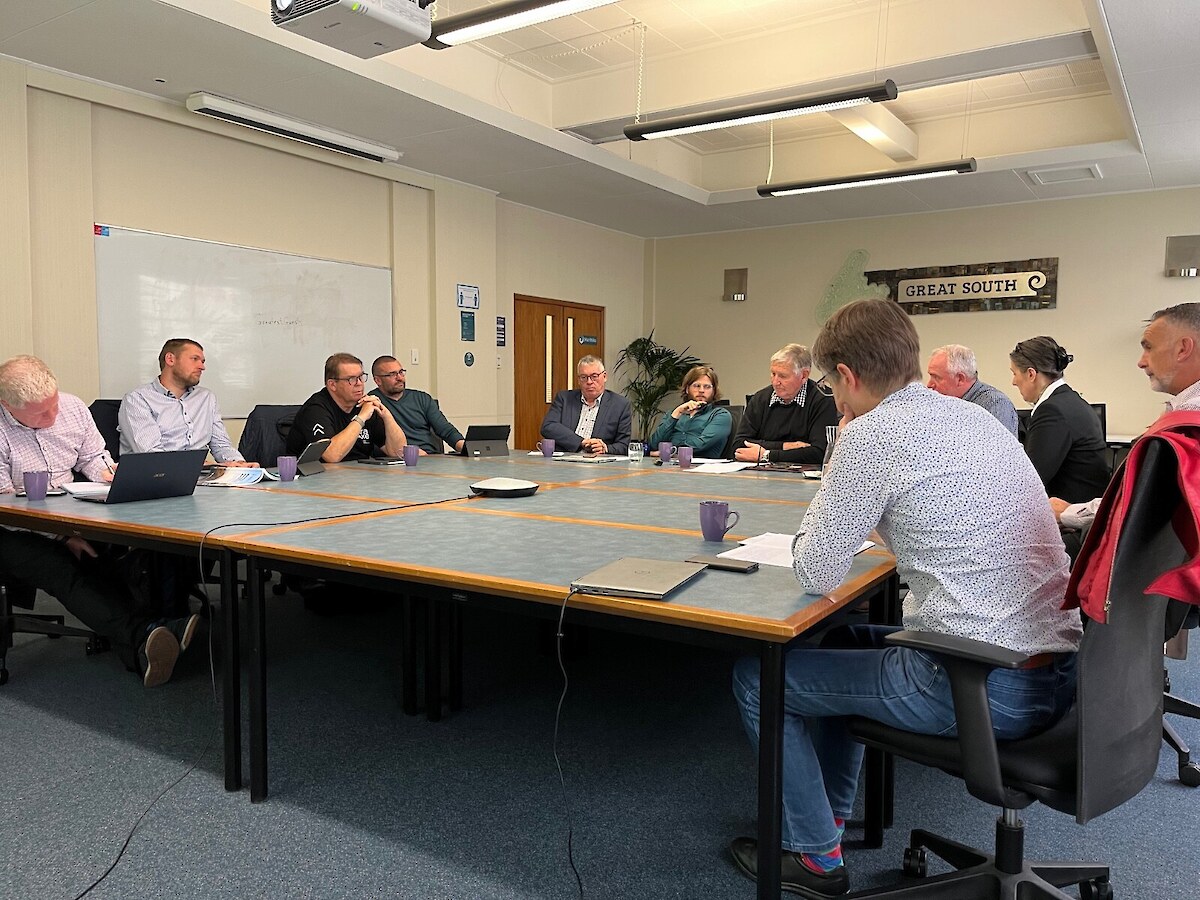Murihiku and Aotearoa energy leaders meet to develop Renewable Energy Plan
On 28 April 2022, Murihiku Regeneration hosted a half day workshop at the Great South offices - with local, regional and national energy leaders to continue with the process of developing a Renewable Energy Work Plan that can be presented to government and also the Murihiku Hapū later in 2022. Murihiku Regeneration has responsibility for both the Clean Energy and Worker Transitions workstreams. Attendees at the Clean Energy workshop on Thursday 28 April.
Attendees at the Clean Energy workshop on Thursday 28 April.
Murihiku Regeneration was also well represented at the workshop by Terry Nicholas (Hokonui Rūnanga) and Dion Williams (Te Rūnaka o Awarua).
From an Iwi perspective, Dion Williams was very keen to ensure, ”that any actions recommended supported social infrastructure, with good community and whanau buy-in to support the introduction of new energy opportunities like green hydrogen”.
The purpose of the working group is to identify actionable new industries, identify opportunities around new energy generation and enable smaller supporting industries and amplifying technologies for the region that can be implemented in the near term.
During the workshop – presentations from expert members of the group – including Ross Copland (CEO NZ Infrastructure Commission), Dr Regina Eisert (Marine Energy), Anna Kominik (Edmund Hilary Fellowship) and Steve Canny (Great South) provided context around how they thought the Murihiku-Southland renewable energy ecosystem the potential goals, framework and priority projects should be considered.
Independent Chair, Eric Roy said, “I felt the group provided some really useful insights and contributions that need to be further developed to make them credible, actionable and support the region to embrace renewable energy and the opportunities it will bring to the whole community”.
The group is due to report back into the Just Transitions programme in late June, and to provide a final report in late August 2022.
Posted: 3 May 2022
